PNP for US Residents
A&M Canadian Immigration Law Corporation
PNP for US Residents
The Provincial Nominee Program (PNP) is a set of immigration pathways managed by individual provinces and territories (except Quebec and Nunavut) in partnership with the federal government. Under the PNP, provinces nominate applicants who intend to
settle in that province, based on that province’s economic, labour market, and demographic needs.
A provincial nomination significantly strengthens your application for permanent residence, especially if you get an “enhanced nomination” aligned with Express Entry, which gives you a 600 point boost in the
There are currently 11 main Provincial Nominee Programs across Canada. These belong to provinces/territories such as British Columbia, Alberta, Manitoba, Ontario, Nova Scotia, PEI, Saskatchewan, New Brunswick, Newfoundland & Labrador, Northwest Territories, and Yukon. Although the core number is 11, there are over 80 distinct PNP “streams” across these provinces, each with different eligibility criteria, occupations targeted, job offer requirements, and whether they are aligned with Express Entry.
PNPs have grown rapidly in importance. As of the latest levels plan, Canada expects to admit over 100,000 new permanent residents each year through PNPs. Many provinces are increasing their allocations to respond to local labour shortages.
A&M Canadian Immigration Law Corporation is mainly Manitoba based and we work with MPNP (Manitoba Provincial Nominee Program) candidates among all PNP programs.
PNP Eligibility
Eligibility varies depending on the specific province and specific PNP stream. However, there are several common eligibility criteria many PNPs share:
- Age: Most programs require applicants to be at least 18 years old.
- Education: A minimum of high school is usually required. Foreign credentials must often be assessed via an Educational Credential Assessment (ECA) to ensure equivalency to Canadian standards.
- Language Proficiency: English or French proficiency via approved tests (IELTS, CELPIP, TEF, etc.). Required levels vary by stream.
- Work Experience: Many streams require relevant work experience. The required time can vary depending on the stream. Some streams in IES in
MPNP accept candidates without work experience if they have recently graduated from a local institution.
- Job Offer / Connection to the Province: Some PNP streams require a valid job offer from a provincial employer; others accept applicants with family ties, prior study/training, or other connections. A strong intention to settle in that province is usually required.
- Proof of Funds: Demonstrating adequate funds to support yourself (and dependents) until you become established in the province.
- Health & Security Checks: Like all immigration, you must pass medical exams and background/police checks.
How to Apply for a PNP
Here’s a general step-by-step process to apply through a Provincial Nominee Program:
- Choose the province or territory you want to live in. Research which PNP streams match your skills, work experience, language ability, and whether they are aligned with Express Entry or are base (non-Express Entry).
- Check stream requirements: Once you pick a province and stream, check eligibility details (job offers, occupations in demand, connection
requirements).
- Submit Expression of Interest (EOI) or profile (if required): Many provinces use EOI systems or points’ ranking to invite candidates.
- Get a Nomination: If you are selected under the PNP stream, you receive a nomination certificate. If the PNP stream is Express
Entry-aligned (enhanced), you can use that nomination to get +600 CRS points.
- Apply for Permanent Residence (PR): With a nomination, apply to IRCC for permanent residence. If aligned with Express Entry, you submit via your Express Entry profile; otherwise, through the federal PNP (paper-based) process. Include all required documentation (medical, police, language, proof of
funds, etc.).
- Settle in the province: Once nominated and PR granted, you should plan to settle in the province that nominated you (this is part of the commitment).
For U.S. residents wanting to move to Canada, the Provincial Nominee Program (PNP) provides flexible and powerful immigration pathways, often with more targeted streams than federal-only programs. If your background aligns with in-demand jobs, you have strong language skills, or you have existing academic or familial ties to a Canadian province, a PNP stream could significantly increase your chances of obtaining Canadian permanent residence.
Because each province’s streams differ considerably, it’s crucial to choose the right province, meet its specific eligibility criteria, and follow the application steps closely. Working with an immigration professional can help ensure your application is well prepared, timely, and aligned with both provincial and federal requirements.






